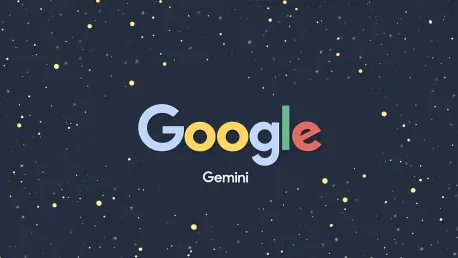In a rapidly evolving tech landscape, Google’s recent launch of the “Gemini Utilities” extension for Android users marks a significant stride in enhancing user control and experience. Unveiled during the I/O 2024 conference in May, this extension heralds a new era in how users interact with their devices. As Alphabet Inc.’s latest innovation, it seeks to offer robust competition in the artificial intelligence (AI) sector, particularly against formidable players like OpenAI’s ChatGPT, Microsoft Copilot, Anthropic’s Claude, and others.
Current Industry Overview
The tech industry has witnessed explosive growth over the past few years, driven predominantly by advancements in AI and machine learning technologies. Alphabet Inc., founded in 2015, has been at the forefront of this evolution, leveraging its diverse array of services to integrate AI more deeply into consumer experiences. In 2023, Alphabet reported a staggering 15% increase in revenue, culminating in an impressive $88.27 billion for the third quarter alone.
Despite these gains, the industry is not without its challenges. Rising competition and increasing scrutiny over AI ethics have put companies under pressure to deliver not just innovative but also responsible technological solutions. Google’s move to expand its Gemini platform reflects both its commitment to AI leadership and its response to growing market demands.
Analysis and Trends
The Gemini Utilities extension’s introduction replaces the former Google Assistant fallback, adding substantial versatility and depth to user interactions. Here are some key functionalities:
- Control of alarms, timers, apps, and media: Integration with Google’s Clock app allows users to manage their schedules through conversational settings. However, compatibility with third-party apps remains somewhat limited.
- Enhanced multitasking capability: Users can now execute multiple commands in a single prompt, such as adjusting device volumes, enabling battery saver mode, or even triggering a timed photo.
- Improved device control: Access to flashlight, volume, brightness settings, and the ability to interact with websites and apps further enhances user convenience.
With its rollout currently limited to the English language and an undefined timeline for full availability, Google aims to maintain a gradual approach to widespread adoption. This calculated rollout aligns with AI trends where companies focus on iterative release strategies to manage potential issues effectively.
Alphabet’s integration of Gemini within its ecosystem indicates a broader strategy to create a seamless AI experience across its platforms, including Google Maps, which now boasts over 2 billion users empowered by Gemini models. AI-driven initiatives are quickly becoming ubiquitous across tech products, reflecting a trend towards personalized and efficient user interactions.
Future Outlook
While Google’s Gemini project has seen promising integration and user response, it has also faced criticism, particularly concerning biased responses and inaccuracies in image generation. Addressing these concerns will be paramount as the company continues to refine its AI offerings.
Given the year-over-year growth and strategic moves by Alphabet, the future for Gemini and similar AI utilities looks promising. The expansion to developers, starting with platforms like GitHub Copilot, underscores a commitment to broadening their technology footprint.
Looking ahead, the focus will likely shift to enhancing AI’s ethical framework, improving user trust, and seamlessly integrating AI into everyday tasks. As the industry continues to evolve, Google’s forward-thinking initiatives demonstrate a clear trajectory toward more sophisticated, user-friendly, and responsible AI innovations.









